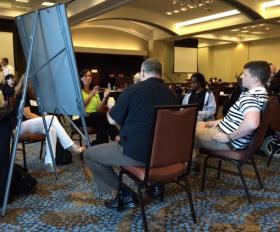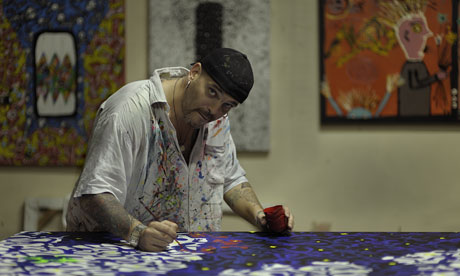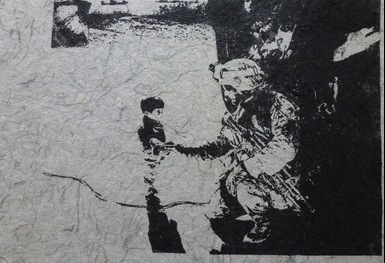1 Nov. Writer’s Workshop
12 Nov. Veterans Writing Collective Literary Showcase
Thanks, Jerry Bradley, for keeping us informed!
Veterans Writing Collective Presents Deployed
Date and Time: 19 October 2014, 2:00 p.m.
Description:
Deployed tells stories of war through the words of veterans including poems, essays, and diary excerpts. They describe the pressures of preparing for war, deployment, and battle. Words by the late NC playwright and novelist Paul Green frame the beginning and end.
Fee: Admission is free
Date and Time: 19 October 2014, 2:00 p.m.
Description:
Deployed tells stories of war through the words of veterans including poems, essays, and diary excerpts. They describe the pressures of preparing for war, deployment, and battle. Words by the late NC playwright and novelist Paul Green frame the beginning and end.
Fee: Admission is free
Location: Huff Concert Hall Reeves Fine Arts Building
Contact: (910) 630-7110 or rgreene@methodist.edu
Contact: (910) 630-7110 or rgreene@methodist.edu
Writer’s Workshop
Dates and Times: 1 Nov. 2014, from 9:00 AM to 6:00 PM and
2 Nov. 2014, from 1:00 PM to 7:00 PM
Description:
Second annual Writers Workshop @ Your Library is now a two-day event with concurrent workshops by Les Edgerton, Suzanne Adair, Annette Dunlap, Craig Faris, Marni Graff, Clay and Susan Griffith, Chris Roerden, Susan Sloate and Sam Wazan. Registration is required. To register or for more information, visit the Writers' Workshop website. http://cumberland.lib.nc.
Fee: Free
Location: Headquarters Library Pate RoomContact: Robin Deffendall
Contact Number: 910-483-7727 x 1349
Contact Number: 910-483-7727 x 1349
Veterans Writing Collective Literary Showcase
Date: 12 Nov. 2014, from 6:00 PM to 8:00 PM
Description:
Listen and express your thanks to members of the Veterans’ Writers Group as they share pieces that reflect their experiences as service or family members. You are welcome to share your own work that expresses a connection to military services or Veterans Day, and you may join the writers’ group. Readings should be 3-6 minutes in length. Registration is recommended. Please indicate if you plan to share when registering.
Fee: FreeLocation: Headquarters Library Pate RoomRegistration Ends: 11/12/2014 at 6:30 PMContact: Kelly VadneyContact Number: 910-483-7727 ex 1368

















